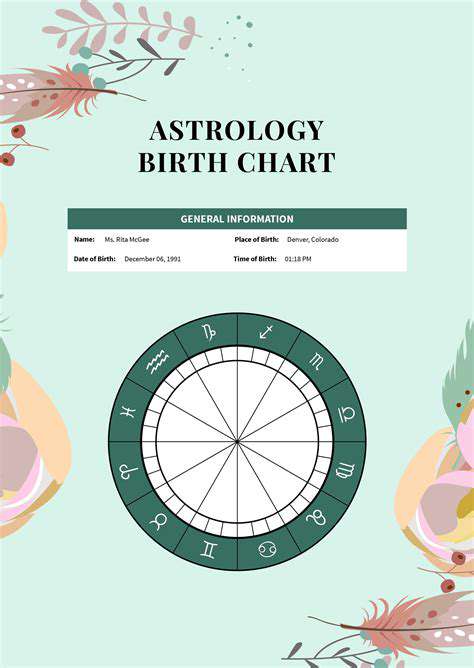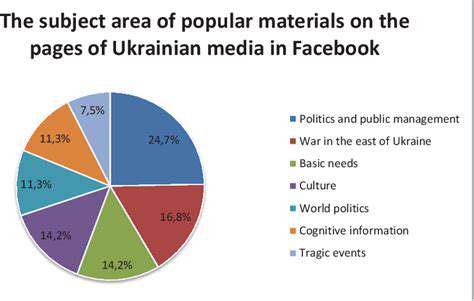The Influence of Celestial Bodies on Human Behavior
An Overview of Astrology's Historical Context
An Exploration of Ancient Astrological Practices
Astrology, with its roots deep in the annals of human history, dates back to ancient civilizations such as the Babylonians and Egyptians. These cultures developed complex systems to understand celestial patterns, which they believed could influence earthly events and human destiny. The Babylonians, in particular, established the concept of horoscopes, mapping the positions of planets during significant moments such as birth or death.
The Egyptians also played a pivotal role in astrology, linking their religious beliefs with the movements of the stars and planets. They saw celestial bodies as embodiments of divine entities, weaving together their mythology with astronomical observations. This convergence laid the groundwork for astrology as a significant aspect of daily life and governance in ancient societies.
Moreover, these cultures communicated their astrological insights through various means, including artworks, temples, and written texts. This ancient knowledge was often passed down through generations, illustrating the long-standing belief in the cosmic influence on human affairs.
The Transition of Astrology Through the Ages
As civilizations evolved, so did astrological practices. The Greeks assimilated earlier astrological knowledge, refining it into a more systematic framework. Key figures like Claudius Ptolemy wrote influential texts that outlined the relationship between celestial phenomena and human behavior, which continued to shape astrological thought for centuries.
During the medieval period, astrology enjoyed a renaissance in Europe, particularly through the Arab scholars who preserved and expanded upon classical texts. This period saw astrology being integrated into medicine, politics, and philosophy as practitioners sought to understand the physical world through celestial interpretations.
However, the advent of the scientific revolution in the 17th century brought skepticism toward astrology. Enlightenment thinkers began advocating for a more empirical approach to knowledge, leading to astrology's decline as a respected discipline. Despite this shift, astrology remained embedded in cultural practices and personal beliefs, marking a significant transition in its societal role.
Modern Astrology and Its Popularity
In recent decades, astrology has experienced a resurgence, particularly among younger generations. The rise of social media and digital platforms has facilitated access to astrological content, allowing individuals to engage with their zodiac signs and horoscopes in new ways. Astrology apps and websites have made personalized readings and guidance available to a broader audience.
This modern revival has transformed astrology into a tool for self-reflection and personal development. Many people turn to astrological insights to navigate life's challenges, using them as a framework for understanding their relationships and career choices. The blending of ancient wisdom with contemporary practices has rejuvenated interest in astrology as a form of empowerment.
Moreover, the inclusivity of modern astrology, which often embraces diverse perspectives and identities, has made it a relevant practice for various cultures and communities. This adaptability has cemented astrology's place in contemporary society, illustrating its enduring influence on human behavior and interpersonal dynamics.
The Scientific Perspective on Astrology
Despite its popularity, astrology continues to face criticism from the scientific community. Skeptics argue that there is no empirical evidence to support the claims made by astrological beliefs and interpretations. Studies often show that astrological predictions fail to hold up under rigorous scientific scrutiny, casting doubt on the validity of astrological methodologies.
However, proponents of astrology argue that its value lies not in predictive accuracy, but in its ability to foster introspection and connect individuals with broader cosmic themes. They believe astrology serves as a meaningful language through which people can engage with their experiences and emotions.
The Basics: Zodiac Signs and Their Traits
The Twelve Zodiac Signs and Their Characteristics
The zodiac is divided into twelve signs, each representing a specific time frame and embodying unique personality traits. These signs are associated with distinct elements, such as fire, earth, air, and water, and influence various aspects of human behavior.
Aries, for instance, is a fire sign characterized by its energetic and adventurous nature. People born under this sign are known for their leadership qualities and impulsive behavior, often seeking challenges and new experiences.
Taurus, an earth sign, is associated with stability and reliability. Those born under Taurus are typically patient, practical, and grounded, valuing comfort and luxury in both their personal and professional lives.
Gemini, an air sign, is synonymous with versatility and intellect. Individuals with this sign display duality in their personalities, often showcasing charm and excellent communication skills, although they may struggle with commitment due to their ever-changing interests.
Lastly, Cancer, a water sign, represents emotional depth and intuition. People born under this sign tend to be nurturing and sensitive, often prioritizing their family and close relationships, while also possessing strong protective instincts.
How Zodiac Signs Influence Relationships and Conflicts
The influence of zodiac signs extends beyond individual traits to affect relationships and interpersonal dynamics. Each sign interacts differently with others, leading to compatibility or clashes.
Fire signs, like Aries, Leo, and Sagittarius, are generally passionate and driven. They can easily spark chemistry with fellow fire signs but may clash with more grounded signs like Taurus or Capricorn, who may find their intensity overwhelming.
Earth signs, including Taurus, Virgo, and Capricorn, often emphasize stability and practicality, which can create harmonious relationships within their group but may lead to misunderstandings with emotional water signs, like Cancer or Scorpio, who might perceive earth signs as overly pragmatic.
Aquarius and Libra, two air signs, thrive on intellectual stimulation and social interaction. They can easily connect with one another and find it easy to communicate but may encounter challenges with the emotional intensity of water signs, leading to potential conflict.
Ultimately, understanding zodiac signs enhances self-awareness and fosters compassion towards others. Recognizing diverse traits can aid in navigating both friendships and romantic relationships, leading to greater harmony and appreciation of individual differences.
How Planets Affect Our Lives
Understanding Planetary Energies
Celestial bodies emit various forms of energy that can influence human emotions and behaviors. Each planet is associated with different energies, which can manifest in our daily lives. Understanding these energies can help individuals gain insights into their actions and reactions.
For example, the Sun is often linked to self-expression, confidence, and vitality. People influenced by this energy may exhibit leadership qualities and a strong desire to create and shine in their environments.
On the other hand, the Moon is associated with emotions, intuition, and nurturing. Those under its influence may experience heightened sensitivity and a deep connection to their inner feelings and the feelings of others.
Planets like Mercury govern communication and intellect. When Mercury is in retrograde, many individuals report challenges in communication and understanding, leading to misunderstandings and frustrations.
Recognizing these planetary influences allows individuals to navigate their emotional landscapes better and align their actions with the prevailing energies of the cosmos.
Cultural Interpretations of Astrology
Throughout history, civilizations have looked to the stars for guidance. Astrology, as a long-standing tradition, emphasizes the significance of planetary positions and movements on various aspects of life. Different cultures have developed unique interpretations and methods for understanding astrological influences.
In Western astrology, the positions of the planets at an individual’s birth are believed to create a personalized chart, offering insights into their personality traits and life challenges. This practice underscores the belief that celestial positions can impact personal destinies.
Eastern traditions, such as Vedic astrology, take a slightly different approach, focusing more on the moon's placement. This reflects cultural values that prioritize emotional connections and intuitive understanding.
While varying in interpretation, the common thread among these traditions is the belief that celestial bodies hold sway over human affairs, making the study of astrology a pursuit of understanding oneself and the world.
These cultural frameworks provide individuals with tools for self-reflection and growth, allowing them to embrace the themes highlighted by their planetary influences.
Scientific Perspectives on Celestial Influence
The scientific community often approaches the idea of celestial influence with skepticism. Some researchers argue that any correlations between planetary positions and human behavior can be attributed to psychological or social factors rather than direct causal relationships.
However, studies have examined the potential connections between lunar phases and human behavior, such as sleep patterns and crime rates, revealing intriguing, albeit inconclusive, patterns. While the scientific basis may be debated, the allure of celestial influence remains strong in society.
Moreover, researchers in fields such as psychology and sociology explore the ways in which cultural beliefs about astrology shape people's perceptions and behaviors, suggesting that the belief in celestial influence can have real effects on mental and emotional states.
This highlights the complex interplay between belief systems and human experience, demonstrating how celestial bodies may impact lives not through direct influence but by shaping societal attitudes and personal beliefs.
As science continues its exploration into these phenomena, there remains a cultural appreciation for the idea that we are connected to something larger than ourselves, leading many to find value in astrological insights.
Personal Empowerment Through Astrology
Many individuals turn to astrology not only for understanding but also for empowerment. By becoming aware of one’s astrological influences, people can make informed choices that align with their strengths and weaknesses.
For example, identifying one’s Sun, Moon, and Rising signs can provide a comprehensive view of one’s personality, prompting self-reflection and personal growth. This knowledge can be a powerful catalyst for change, helping individuals to harness their innate qualities.
Many also find comfort in astrological forecasts, guiding them through uncertain times and offering reassurance when facing challenges. By understanding the cyclical nature of astrology, individuals can learn to navigate life’s ups and downs with greater ease.
While some may criticize astrology as purely entertainment, countless testimonials reveal its profound impact on personal development and self-awareness, as individuals report transformative experiences stemming from their astrological journeys.
Ultimately, whether viewed as a spiritual tool or a psychological framework, astrology holds the potential to empower individuals by providing clarity and perspective in an ever-changing world.
The Role of Birth Charts in Personal Astrology

The Basics of Birth Charts
Birth charts, also known as natal charts, are astrological maps that represent the positions of celestial bodies at the exact time and location of a person's birth.
These charts are unique to each individual, capturing the alignment of planets, stars, and other astronomical phenomena.
The time of birth is crucial because even a few minutes can change the respective positions of the celestial bodies and, consequently, the reading of the chart.
A birth chart typically includes the sun sign, moon sign, and rising sign, which play significant roles in shaping personality traits and emotional responses.
Interpreting the Birth Chart
Interpreting a birth chart can provide insights into various aspects of a person's life, including relationships, career, and personal challenges.
Astrologers analyze the placement of planets in different houses, which represent various life areas such as home, career, and partnerships.
Understanding these placements allows individuals to gain a deeper awareness of their strengths and weaknesses.
Many people turn to their birth charts for guidance when navigating major life decisions, as they believe it can highlight favorable periods for certain actions.
The Influence of Zodiac Signs
The twelve zodiac signs, which correspond with different personality traits, also play a vital role in the interpretation of birth charts.
Each sign is associated with specific characteristics, which can influence how individuals express their emotions and interact with others.
For instance, fire signs are generally seen as passionate and assertive, while water signs are often more intuitive and emotional.
Recognizing one’s sun, moon, and rising signs helps in understanding the multifaceted nature of personality.
Planetary Transits and Their Effects
Planetary transits, which refer to the movement of celestial bodies through the sky as they relate to individual birth charts, can significantly impact human behavior.
These transits create specific energies that can influence emotional states, decision-making, and even major life events.
Astrologers often track these movements to make predictions about upcoming periods that may be more favorable or challenging.
Understanding how these transits interact with personal birth charts can help individuals prepare for or adapt to changes.
The Importance of Astrological Timing
Astrological timing, also known as electional astrology, focuses on selecting the best times to undertake important actions.
Individuals often consult their birth charts to identify auspicious dates for events like starting a new job, getting married, or launching projects.
Being aware of the timing according to astrological cycles can maximize success and minimize challenges.
This practice has roots in ancient traditions and continues to be a significant aspect of personal astrology for many individuals today.
Current Trends and the Popularity of Astrology
Understanding the Resurgence of Astrology
Over the past few years, astrology has experienced a significant resurgence among people of all ages. Many individuals have turned to astrological practices as a means of self-reflection and personal growth. This newfound interest can be attributed to the desire for guidance in a rapidly changing world, where uncertainty often reigns supreme.
Social media platforms have played a crucial role in this revival. With platforms like Instagram and TikTok, astrology content has gone viral, creating communities centered around zodiac signs, horoscopes, and birth charts. Influencers and content creators often share meme-style interpretations of astrological traits, making the subject more accessible and relatable to a younger audience.
Furthermore, the modern approach to astrology incorporates a blend of ancient wisdom with contemporary issues. Many astrologers provide insights that address current social challenges, mental health, and interpersonal relationships, making astrology more relevant than ever. This connection to modern life encourages individuals to explore astrological concepts in relation to their personal experiences.
As astrology moves beyond mere entertainment, it invites deeper discussions about fate, free will, and the human experience. This shift reflects a broader trend of individuals seeking meaning and connection in an increasingly fragmented society.
The Role of Celestial Events in Popular Culture
Celestial events, such as eclipses, full moons, and planetary retrogrades, play a significant role in the popularity of astrology today. Each event is often accompanied by astrological interpretations that capture the public’s imagination. Such occurrences invite people to engage with astrology on a more profound level, fostering curiosity about their implications on daily life.
Astrologers frequently utilize these events to offer predictions and guidance, emphasizing how they may influence emotions, decisions, and relationships. For example, a full moon is often associated with culmination and release, prompting individuals to reflect on what they wish to let go of, thereby driving engagement with the practice.
Moreover, these celestial events have sparked a cultural phenomenon where people gather for “moon circles” or discussions centered around astrology. These gatherings promote community and shared experiences, helping to normalize discussions about emotions, personal challenges, and aspirations through an astrological lens.
This growing appreciation for celestial phenomena also extends to the arts, with music, literature, and visual arts increasingly drawing inspiration from astrology. This artistic representation not only enriches the cultural dialogue but also further embeds astrology into the fabric of modern identity and expression.

